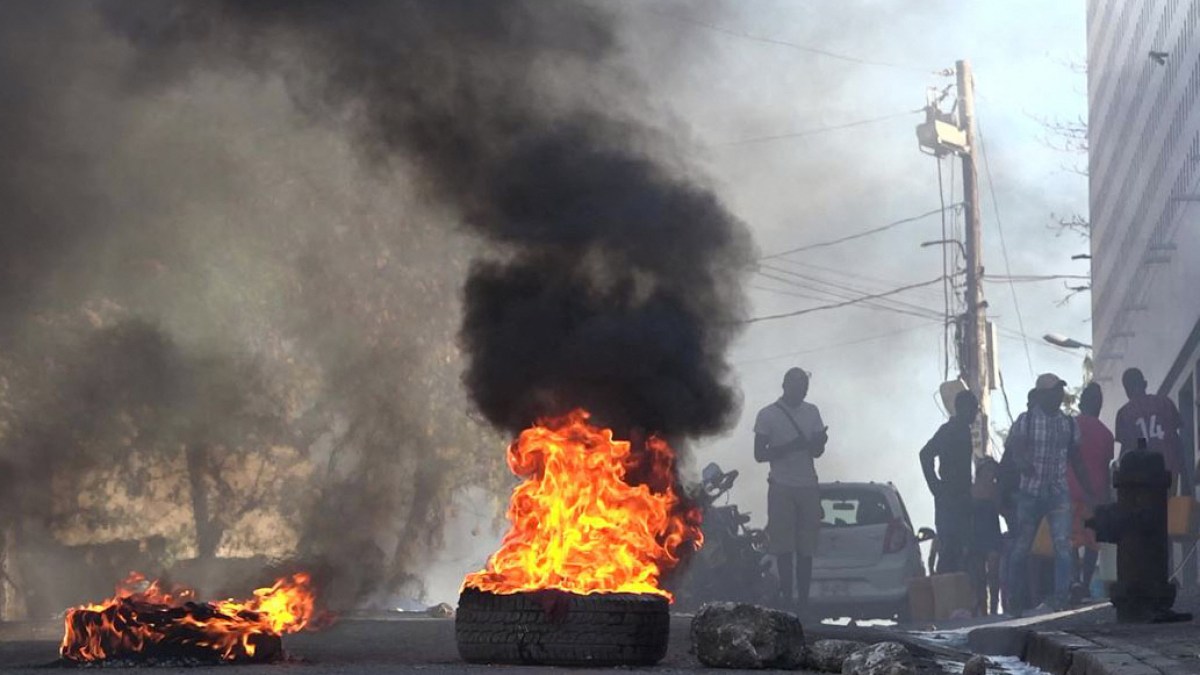The next US president should not take on both Russia and China | US Election 2024
As the presidential race in the United States is heating up, the two candidates – Vice President Kamala Harris and former President Donald Trump – have clashed on a range of issues. Whether it is immigration, reproductive rights or social spending, the two have sought to rally their bases by attacking each other on what they see as the key concerns of voters.
However, there is one issue on which they seem to align: China. Although they have different visions on how to pursue US policy towards the superpower challenging Washington’s position on the world stage, they seem to agree that it is a threat that needs to be contained.
How do they propose to do that? Harris appears to offer a continuation of President Joe Biden’s policies. She would seek to enhance the US’s longstanding security partnerships in Asia by transforming them into economic alliances while also waving a “big stick” against those who seek to violate US sanctions even in partner states.
Harris will also likely continue to push for “de-risking” from China, a policy of relocating manufacturing industry out of Chinese territory – which the Biden administration has promoted as something that can benefit third countries. In the case of some key partners like Vietnam, that has been the case; the country has seen substantial FDI growth as a number of Western companies have moved their operations there.
The Democrats are also keen on placing the CHIPS and Inflation Reduction Acts – which seek to promote domestic production of microchips and clean energy, respectively – not only at the heart of their domestic agenda, but also contextualising them as returning jobs and industries “stolen” by Beijing.
Trump, on the other hand, has doubled down on the “America First” rhetoric of his previous campaigns and even gone further. His wider economic policy rests on a return to 19th century-style broad tariffs on almost all US imports, particularly crushing ones against Beijing.
It is through these policies that he has most significantly affected US geo-economic policy. Today, there is no faction of either the Democratic or Republican parties that calls for actively engaging with China.
The pro-free trade agenda that dominated both sides of the aisle in the 25 years between the Soviet Union’s collapse and Trump’s ascent to power is quietly ignored. When it is mentioned, it is to tar one’s political opponents.
Trump and Harris’s campaigns thus offer different tactical visions of the same strategy – protecting US economic interests by pushing and pulling away from China’s. But both have failed to consider the fact that a far more aggressive Russia is also a threat to the US-dominated international economic order and taking on both Beijing and Moscow at the same time would be foolhardy.
The US has to recognise that China is far more economically important to countries caught in this global rivalry, including allies. This is as true for Georgia and Kazakhstan – two countries that have not embraced the Western sanctions regime against Russia but have signalled some compliance with it – as it is for Germany and the United Arab Emirates, for whom China is almost as important a trade partner as the US.
The “Middle Corridor” of Eurasian trade the West has sought to promote to deter Russia’s influence in the region makes little sense without Beijing’s buy-in. Furthermore, pushing too hard against China risks a backlash that would at best undermine or potentially even reverse some of the progress that has been made in restraining Russia’s geo-economic agenda.
It is important here to point out Moscow’s ever-growing dependency on its large neighbour. Since the full-scale invasion of Ukraine in February 2022, China has become one of Russia’s top trade partners as well as a provider of access to international markets that are otherwise restrained by Western sanctions, with Russian companies seeking to use the Chinese currency, the yuan, for trade with Latin America, Asia and Africa.
But despite ever-escalating sanctions under the Biden administration on Chinese trade, Beijing has yet to fully embrace Russian President Vladimir Putin’s vision of the world order. China does support his rhetoric, particularly at summits of the so-called BRICS nations where criticism of the West and the US in particular is the standard flavour.
Beijing has been reluctant to directly challenge US sanctions on Russia or push hard for a new currency bloc to challenge the dominance of the US dollar. Chinese banks, for example, have significantly cut back on offering yuan trade for Russian counterparties following increased US secondary sanctions threats. Russian media, including slavishly pro-Putin outlets, have noted these challenges; Western media have done so far less frequently.
Even on crucial economic projects, such as the construction of a new major Russia-China gas pipeline dubbed Power of Siberia 2, Beijing is wary of overcommitting. Agreed in principle just weeks before the full-scale invasion of Ukraine, no progress has been made on talks around its development. Mongolia, through which the pipeline is planned to pass, recently indicated it does not expect it to be completed in the next four years.
If the next US president decides to wage a two-front economic war with Russia and China, this would push Beijing closer to Moscow’s position. Presently, Chinese President Xi Jinping sees his country as the rightful centre of the emerging international economic order, displacing the US. By contrast, Putin believes that the existing international economic order should be destroyed, even if only rubble is left once it is gone.
Russia’s commodities-dependent economy has no chance of being a great economic power like the US. That is why, it hopes that by knocking everyone down a peg it can compete as one of many moderate economic powers.
This thinking lies at the core of Russia’s full-scale invasion of Ukraine and its willingness to politicise everything – from sovereign lending markets to gas trade in its aftermath. China is certainly a major economic competitor for the West and the US in a way that Russia cannot have any hopes of being in the foreseeable future, but its track record of invading neighbours is far less pronounced than Russia’s.
Its economic warfare is also largely relegated to trying to improve its position through strategic loans, new institutional aims such as mobbing arbitration centres from the West to China, and state subsidies for critical industries. In short, it is a competition that the US can engage with and against over the long term, whereas Putin’s threats, risk tolerance, and willingness to wage war are far more pronounced in the short term.
That is why, it makes more sense to pursue increased cooperation with China now, or at least try to ensure its support for Russia is as limited as possible. The battle over where automotive production and supply chains will run can wait. This logic should hold even for the most hawkish US voices on China – rebuffing Russia’s threat today will leave the US and its allies in a far stronger place to outcompete China in the future.
The views expressed in this article are the author’s own and do not necessarily reflect Al Jazeera’s editorial stance.
Check out our Latest News and Follow us at Facebook
Original Source







